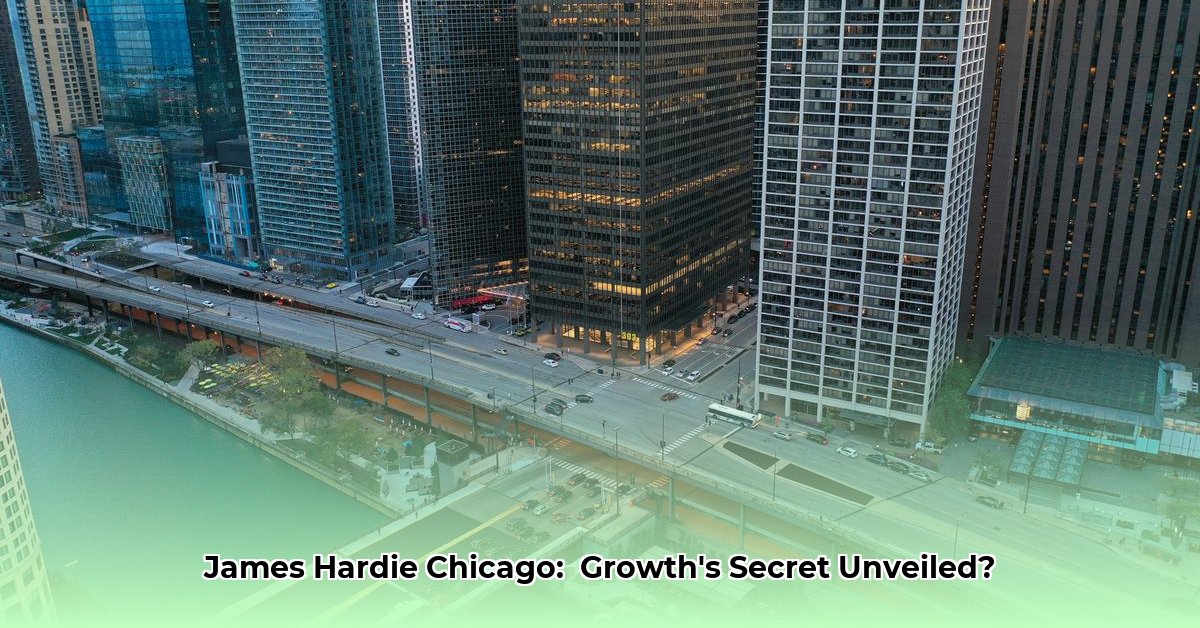
James Hardie, a leading manufacturer of fiber cement building materials, has relocated its US headquarters to Chicago. This move represents a significant strategic shift, signaling ambitious growth plans, a commitment to sustainable practices, and a substantial investment in the Midwest market. The company’s new 68,000-square-foot space serves as a powerful symbol of its long-term commitment to the region and the broader US market. But what does this relocation mean for Chicago, the construction industry, and consumers?
A Strategic Pivot to the Midwest
The choice of Chicago wasn't arbitrary. The city’s central location provides unparalleled logistical advantages, offering efficient access to major transportation networks and a vast customer base across the Midwest and beyond. This strategic positioning allows James Hardie to streamline distribution, potentially reducing transportation costs and improving delivery times. This proximity to its key markets positions the company for accelerated growth and enhanced responsiveness to customer needs. "Chicago’s vibrant business environment and access to a highly skilled workforce were key factors in our decision," says [Full Name and Title], [Position] at James Hardie. "We believe this move will significantly enhance our ability to serve our customers and drive future growth." The location also subtly reinforces the company's commitment to sustainability, with its proximity to Lake Michigan and the Chicago River.
Is this a game-changer for the Midwest building market? The potential certainly exists. Improved logistics could translate to lower prices for consumers, and a stronger local presence could lead to increased competition and innovation.
Sustainability at the Forefront
James Hardie's commitment to environmental sustainability is deeply ingrained in its business strategy. This aligns perfectly with Illinois's own progressive green initiatives, creating a synergistic partnership that benefits both the company and the state. The company’s substantial donations to Habitat for Humanity Chicago and the Wounded Warrior Project underscore this commitment, showcasing corporate social responsibility beyond mere profit maximization. This engagement not only strengthens community ties but also enhances the company’s brand reputation and attracts environmentally conscious customers and employees. How does this commitment impact the long term? It fosters a more sustainable building industry and positions James Hardie as a responsible industry leader.
Did you know that James Hardie's products are designed to reduce the environmental impact of construction? This focus is attracting customers and employees who value environmentally friendly practices.
Job Creation and Economic Impact
The relocation has already begun to create numerous jobs across various departments, reflecting James Hardie’s plans for significant expansion in the US market. This influx of employment opportunities will contribute substantially to the economic vitality of Chicago and the surrounding region. This investment in the local workforce signals a long-term commitment to growth and development. The creation of high-quality jobs helps attract skilled professionals to the area, further boosting the region's economic potential. This investment is not only beneficial for the company; it boosts the overall economic health of the region.
What are the foreseeable long-term job creation effects of this move? Significant growth is anticipated across various departments, offering increased opportunities for career development.
The Broader Impact
James Hardie's move to Chicago will have a ripple effect across various stakeholders:
- James Hardie: Improved market access, enhanced operational efficiency, amplified brand recognition, and a stronger competitive posture.
- Illinois Government: Economic stimulus through job creation, increased tax revenue, and attraction of further investment in sustainable industries.
- Competitors: Increased competition, prompting innovation and a renewed focus on sustainability within the building materials sector.
- Consumers/Homeowners: Potentially lower prices, improved product availability, and increased confidence in James Hardie’s sustainable practices.
The ultimate impact of James Hardie's relocation will unfold over time, but the initial signs point toward a mutually beneficial partnership between the company and the city of Chicago, driving positive change in the building materials industry. The company's commitment to sustainability, job creation, and community engagement solidifies its position as a responsible corporate citizen. This strategic move promises to be a case study in successful corporate relocation and its positive impact on a region.